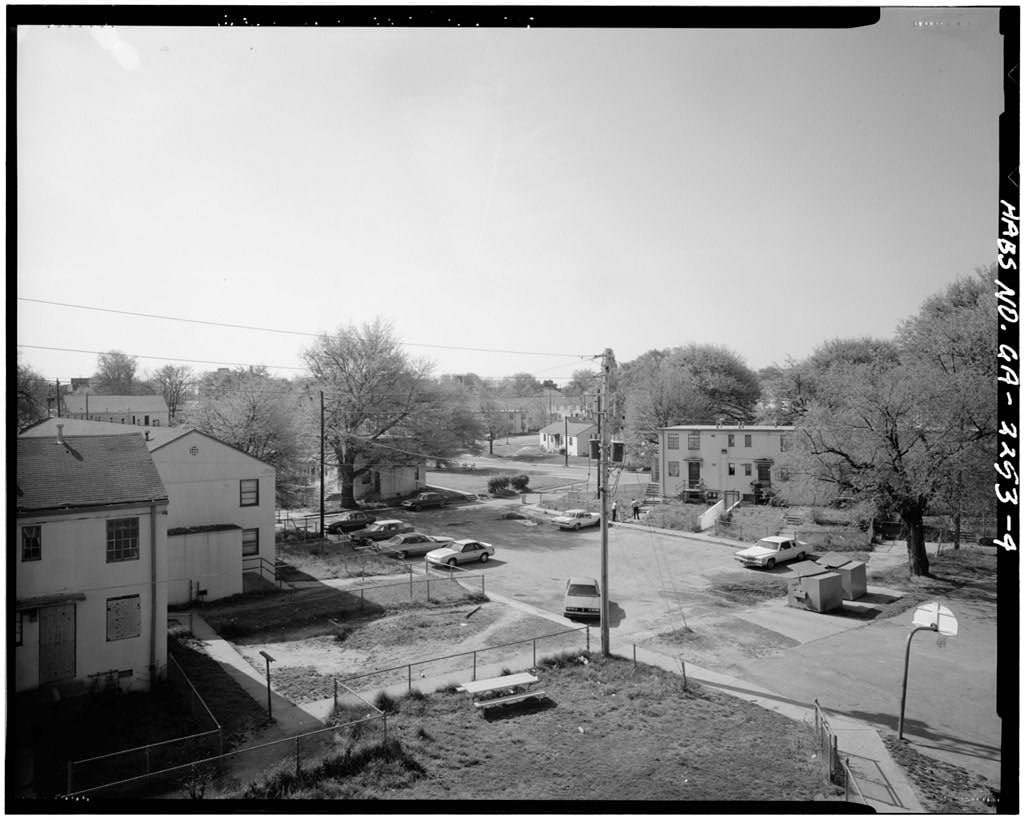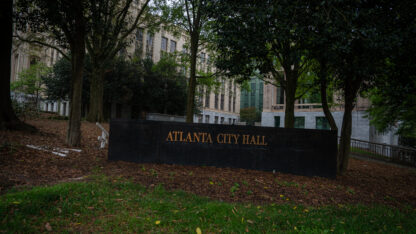People often think of public housing as a failure in Atlanta.
The city embraced the idea early on. It opened the first project in the country, Techwood Homes, in 1934. And after that, Atlanta kept building public housing. At one point, 50,000 tenants—10% of Atlanta’s population—lived in government-funded units.
But by 1980, the projects became known as centers for crime and poor living conditions. That year, Akira Drake Rodriguez points out in her new book “Divergent Space for Deviants: The Politics of Atlanta’s Public Housing,” the city found ten thousand housing code violations at Techwood Homes and neighboring Clark Howell Homes.
When Atlanta won its bid for the 1996 Olympics, it started a twenty-year campaign to tear all of its projects down.
Now Rodriguez’s book explores what was lost in those demolitions. In “Divergent Space for Deviants,” she follows how Atlanta’s low-income Black residents found a unique kind of political power in public housing. Rodriguez, a professor at the University of Pennsylvania, spoke about her work with WABE’s Stephannie Stokes.
Why public housing allowed Atlanta’s Black residents a new form of political engagement…
Rodriguez: The black population at the time was roughly 40% when public housing came to the city. In 1936, in 1937, with the opening of University Homes, this was the first time that black residents had an alternate space to gather. So they had their own kind of baseball field, an auditorium, stores that were catering specifically to their neighborhood, community in a way that they were not afforded as a result of the white Democratic primary, which lasted between 1892 and about 1946. And so, not having the ability to vote in special elections and primaries because they were exclusively for white Democrats, this allowed them to use alternate modes and alternate scales, such as the federal government, in order to get those local resources.
How tenants’ political power grew after the fall of the white Democratic primary…
Rodriguez: After about 14 years of mobilizing before the end of the white Democratic primary, you see a massive ability to do voter registration, to actually have University homes, again, the first African American development in the city that opened in 1937, serve as both a space for voter registration and as a space to vote in these elections. And so, to consolidate and mobilize that political power really allowed them to gain a foothold in the political machine in the early 1950s.
The moment when tenants of Atlanta’s public housing made their power known…
Rodriguez: I think the election of Maynard Jackson [in 1973] was a major turning point. He really valued going into public housing neighborhoods and bringing city hall into underserved neighborhoods, really using these bases, of which tenant associations and public housing developments were very formative, to mobilize a counter against the traditional regime, which was sort of run by downtown business establishment. And so I think, Maynard’s election, I’m not going to attribute it to public housing residents, but certainly, they were a powerful force. And I think he recognized that.
On the role of tenants’ association in the demolition of public housing projects…
Rodriguez: They were complicit. But they were also sort of defanged. Public housing was demolished over 20 years in Atlanta through a series of programs largely triggered by the Olympics and what is known as Hope VI. And these programs, we’re tackling buildings that were between 60 and 80 years old, residents who were also aging. And so it was very difficult to sort of mount a resistance when there was all of this federal money coming in to dismantle public housing. And so I do think that in the wake of that loss of public housing, we do lose that capacity, the structure, the literal structure of the tenant association as a conduit between residents and housing authority managers and eventually, you know, upper levels of political leadership.
Akira Drake Rodriguez will discuss her book in an online event from the Georgia Center for the Book tonight, May 17, at 7 p.m.









